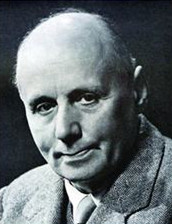Education is A Force
Issue date:2017-12-12I strongly believe that if you want to change the world, you should begin with improving the quality and access of education systems globally. Providing youths with equal opportunities in the job market and improved access to affordable higher education could boost long-term development across various communities in the world.

There is a proverb in Tamil, a South Indian language widely spoken in Southern India, Sri Lanka, Malaysia and Singapore, which says: “இன்றைய இளைஞர்கள் நாளைய தலைவர்கள்.” It roughly translates to “the youth of today are the leaders of tomorrow”, capturing my view on the importance of a well-educated and fully employed youth population. I strongly believe that if you want to change the world, you should begin with improving the quality and access of education systems globally. Providing youths with equal opportunities in the job market and improved access to affordable higher education could boost long-term development across various communities in the world.
Although we have achieved groundbreaking success with the Millennium Development Goals with the provision of universal primary education, mere access to primary schooling is no longer sufficient in a globalizing world with competing foreign markets for cheaper goods and more skilled labour. Often, accelerated globalization in developing countries has the consequence of bifurcating rural and urban populations both economically and socio-culturally. This is because development is concentrated in urbanized areas, causing unequal opportunity and making social mobility up the ranks of the socio-economic ladder difficult. This only further worsens the problem of income inequality as the rich are getting richer, with 99% of global wealth concentrated in the hands of just 1% of the 7 billion. I cannot argue that education is a panacea for our deep-rooted issues of income inequality and poverty, but I do believe in the tangible and intangible values of quality education that guarantees greater benefits to society.
In coming to United World College, I was well-aware of the privileged background I had. The Programme for International Student Assessment (PISA) conducted annually by the Organization for Economic Cooperation and Development (OECD) measures youth proficiency in English, Mathematics and Science. Shanghai, Singapore, Hong Kong, Taiwan, South Korea, Macau and Japan consistently emerge as the top performing countries around the world. Singapore is often dubbed an ‘economic miracle’ for its transformation from a developing ‘little red dot’ to its current wealth and status within just 50 years of independence. From my perspective, the rapid social growth was enabled by concentrated efforts to provide affordable, universal quality education. Our current literacy rate stands at 100% as result of 12 years of compulsory schooling. The government subsidizes education heavily for locals and grants free breakfast schemes to give students from disadvantaged backgrounds the opportunity to thrive at school and stand on a level playing field with their more advantaged counterparts. Our government and education system prioritize meritocracy, meaning that everyone is given equal opportunity to succeed given they work hard and utilize the resources they are given.
Currently, our country is embroiled in widespread debate about how we can ensure that our success does not translate into elitism for those at the top and enjoying the spoils of our society’s wealth and elite school education. Another hot button issue is how to ensure students are intellectually engaged and curious, rather than rote learners who can only commit facts and figures to memory. I think this idea extends to a greater society, which needs creativity, innovation and flexibility to flourish. This seems rather ironic to outside onlookers, given Singapore’s reputation for being ‘strict’, ‘rigid’ and an eerily successful model of ‘careful social engineering’. I must say that this irony is not lost on me either. We must learn to balance our general political conservativeness with allowing individualistic creativity to strive, rather than promoting a culture of fear for authority.
While I realize that not all countries are as fortunate as mine, it still comes as a shock when I hear my co-years share the state of education in their countries with me. My Singaporean alum nailed it on the head when she said that she felt she could scarcely relate to her co-years in UWC about the suffering or injustice of their people back home, coming from a stable and peacefully developed country. This is why I immensely appreciate being in UWC, for I am exposed to first-hand experiences and perspectives of people personally affected by these issues. I am afraid many of my fellow Singaporean youths are taking for granted the bubble of comfort they live in as any news of conflict, war, natural disaster or political upheaval seem so far away in the black-and-white pages of newspapers.
I interviewed Borniface Kabongo from Zambia about his education system back home. Surprisingly, our countries shared some similarities in that we both had systems that revolved around national examinations, which determined the prestige of the school you attended in higher grades. I was surprised to find that Bornnie had already completed 12th grade in Zambia, but had chosen to repeat 2 whole years of high school education in UWC. When asked why, he explained that he could not attend university in Zambia despite getting top grades as the prevalence of corruption and nepotism meant that only those closely connected with people in government or wealthy enough to bribe for a seat had any chance of attending university. As result, he had to look for opportunities to pursue his dream of becoming a cardiologist overseas and he trusted that UWC would provide a gateway for him to attend university. According to Bornnie, in Zambia there were government bursaries that sponsor students to pursue an education in either Russia or China. He had applied to study in Russia with a full scholarship before he had even heard of UWC. When he found out that other students had been given the scholarship to Russia although they had lower grades than him, he went to the office involved to find out the reason behind this. One of the employees told him that one of his documents had not been submitted or had ‘gone missing’. Convinced that he had submitted all his documents in the proper order, he then realized that he had not been given the scholarship opportunity because he was not related to any government official and he was not able to bribe his way into the scholarship.
At breakfast one morning, I was discussing how my interview with Bornnie had strongly impacted my views on education and how this had given me inspiration to work towards ensuring quality education on a global scale in the future. Nikita Cano from Mexico then told me how teachers in her country are paid minimum wage. Nikita’s described how there are two teachers’ unions = one that pushes for education reforms and a higher quality of education and another that is made up of untrained and undedicated teachers. The latter often pressures the government to prevent them from passing laws that would improve the quality of education in Mexico. I see it as a great tribulation that selfish interests cloud a merit good like education. If teachers are being paid minimum wage, they will be less incentivized to plan quality lessons and engage their students in a system where they barely have any interest to remain in. Even those who are doing it out of their noble beliefs of the valuable impact of providing education would lack the resources to properly structure and ensure continuity for their students.
I visited a village in Indonesia to teach English and participate in cultural exchange as part of a six-day school trip. I can never forget the smiles of the little kids in their batik shirts and shorts, crying profusely as we left, calling us older sisters in Bahasa Indonesia. I recall this memory because one line a translator told us had been very strongly embedded in my heart and left a lasting impact on me. He said, “Most of these kids either get pulled out by their parents by ninth grade or they drop out themselves at twelve or thirteen years of age, having lost interest in a schooling that could never give them opportunities to the outside world as they went to work on the farms and help their parents out.” I believe no child should ever be in this situation, and we are not powerless to stop it. You can help provide support training for teachers in schools in your country, or even pursue the dream of becoming a teacher yourself. Let us work to ensure that no child gets left behind.
Shayna Robinson, Alumna of UWC Changshu China (2015-2017)










